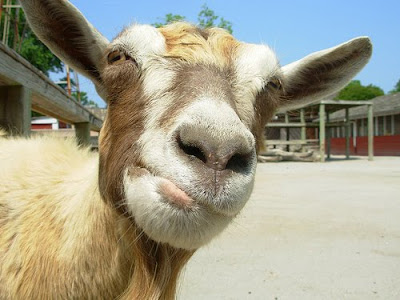
There is a danger in loving to read and being fascinated by history, both. One sometimes discovers things one wishes went undiscovered. Valentine's Day is a case in point. My blogging has been quite in arrears, and all I wanted to do was to send you all a brief but sincere Valentine's Day greeting. But I couldn't help myself. First, I had to find out where Valentine's Day came from.
A word to the wise: Don't go looking for the origins of established and formerly unquestioned cultural practices. It may just take the wind right out of your sails.
I'd love to be able to say that Valentine was an early Christian who was martyred by a Roman Emperor for some selfless act of love, and that before his heroic death he sent a letter to a girl he had miraculously healed and subsequently fallen in love with (the daughter of his jailer, no less) and signed it: "From your Valentine."

But as it turns out, the story of that Roman Valentinus and other Valentines are but the stuff of legends, and the truth about Valentine's Day would probably not provide material for a Hollywood blockbuster. For apparently, as with many things in Western culture, Valentine's Day is a mixture of Christian, "pagan" (in this case, Greco-Roman), imagination, and entrepreneurship.
In fact, the Roman fertility rite to Faunus -- that included killing goats and slapping girls with their bloody hides, culminating in girls putting their names in an urn to be drawn in a lottery to match them with men -- was outlawed by the Pope in the late 5th century. So the Christian element actually repudiated historic "Valentine".

But February maintained a tradition related to fertility and love, and by the mid-18th century, Westerners could draw from the likes of Chaucer, Shakespeare, Donne, and many others for romantic Valentine inspiration.
Westerners were also drawing from folk traditions that went back ages: Girls, think of the boys you'd like to marry. Take an apple and twist the stem while reciting their names. The name you mention when the stem twists off is the one you'll marry. Sounds silly but for the fact that we still have many versions of this Roman lottery game today. (Don't get me started on the tradition of wish-bone snapping--also Roman.) I wonder how many apples little girls would go through before the stem finally came off on the right name? Good thing it didn't depend on the collar bones of turkeys, or they'd be extinct today just so we could "get a lucky break."
Printed Valentine cards appeared in England just in time to allow people to say intimate things to one another (from a comfortable distance) at a time when expressing your feelings was discouraged.

Victorian Valentine Card.
Click picture to read poem.

OK, so it turns out that Valentine's Day has come a long way from goat-slapping girls and auctioning them off to men in a lottery. This is one case where ignorance is definitely bliss. I mean what if the girl was 15 and the guy was 50?
And let's not forget the poor goats. They are the real heroes in this whole sorted tale. But who remembers the goats on Valentine's Day? I'm probably the only one in the whole world. How sick is that?
Like many Western holidays and practices we must rely on what they mean to celebrate them properly. The history has disappointed in this case, and commercialization has one all-consuming purpose. But the meaning must never be lost: Love, affection, friendship, good will. That is what we have chosen Valentine to mean.

So I wish for you all
the happiest, the richest, the most blessed Valentine.
the happiest, the richest, the most blessed Valentine.
First to my wife Anita, who more than any one I've ever known has taught me the meaning of lifelong love and friendship.
And to you, my family and all my friends and readers.
Happy Valentine.
